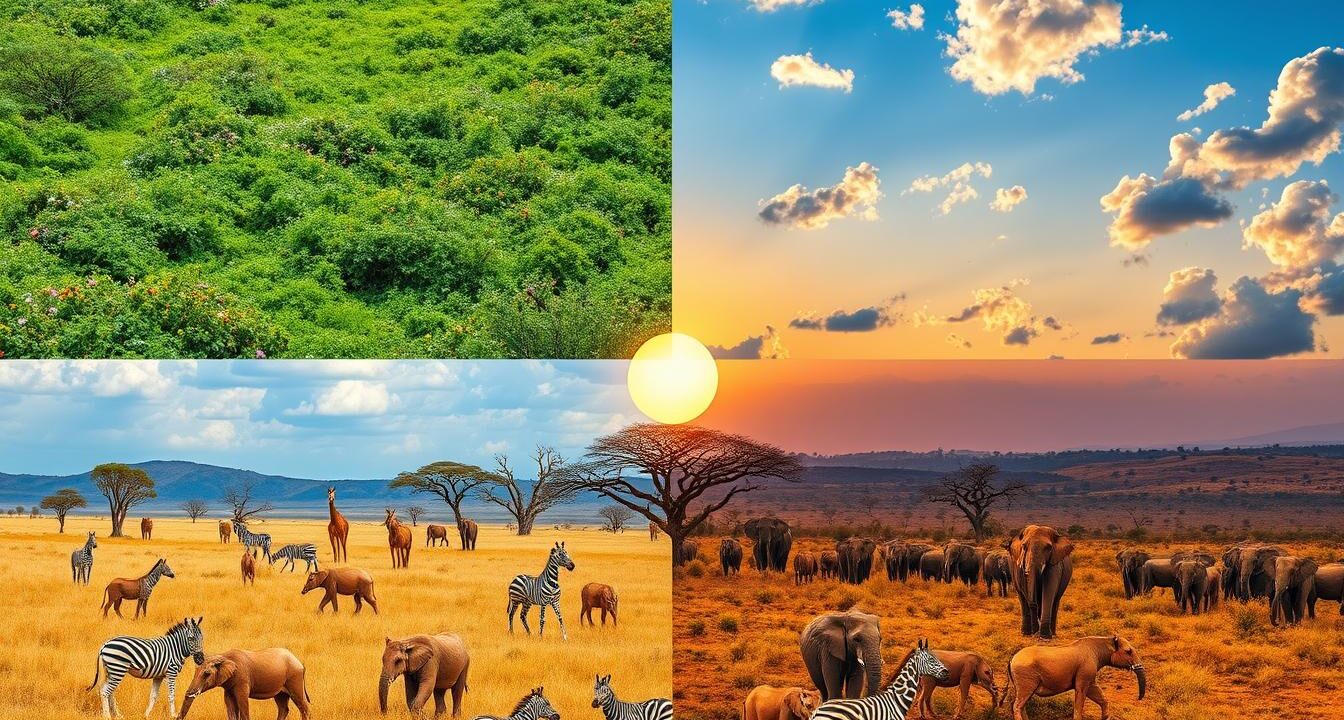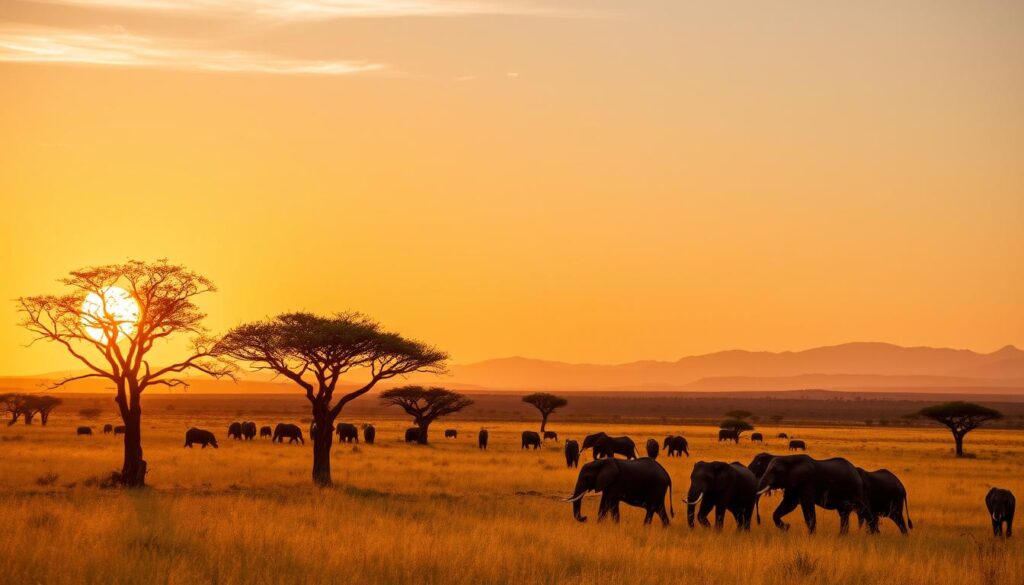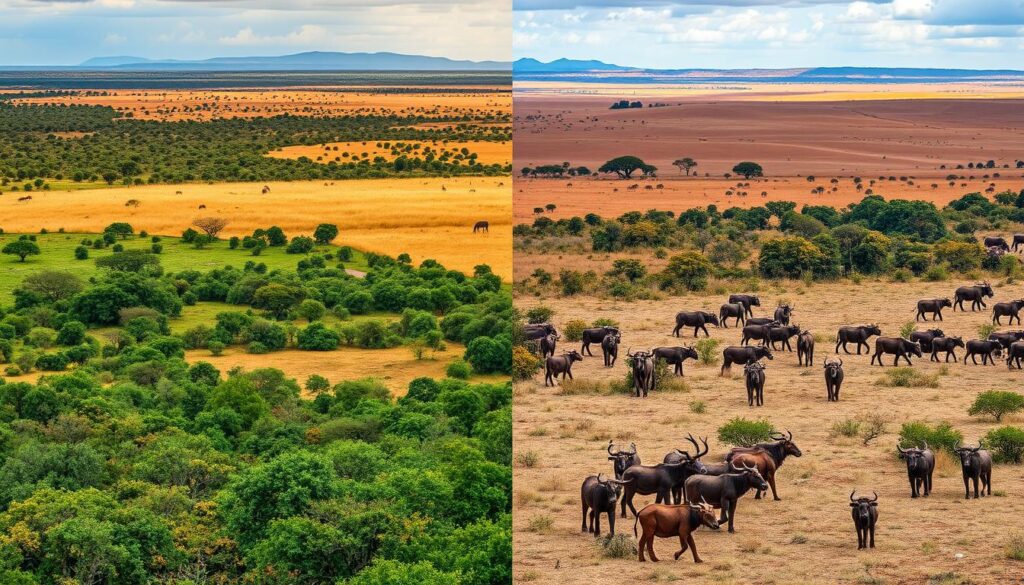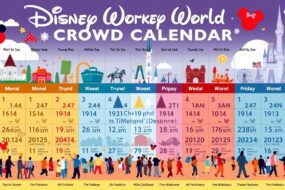
Planning your African safari adventure raises a key question – when is the best time to go? The timing greatly affects wildlife viewing, weather, and your overall experience. So, what’s the perfect time to explore Africa’s stunning landscapes and varied ecosystems?
Key Takeaways
- The peak safari season in Africa is typically from June to October. This is when dry conditions make wildlife spotting easier.
- The shoulder seasons of April-May and November-December offer unique benefits. You’ll find fewer crowds, lower prices, and the chance to see newborn animals.
- Certain events and wildlife migrations, like the Great Migration in East Africa, have specific optimal viewing periods.
- The best time for an African safari depends on your personal preferences and the experiences you wish to have.
- Careful planning and advance booking are essential, especially for peak season travel.
Introduction
Planning an African safari requires careful timing. The season you choose affects wildlife, weather, and tourist numbers. Knowing these changes helps see more animals and landscapes, and can save money by avoiding peak times.
Importance of Timing for an Unforgettable Safari Experience
The best time of year for an African safari can make all the difference in witnessing the incredible wildlife and natural wonders of the continent. Factors such as migration patterns, calving seasons, and dry versus wet seasons all influence the ideal timing for African wildlife viewing and optimal periods for African game drives. Knowing the recommended times for African safaris can help ensure an unforgettable safari experience.
Factors Influencing the Best Time for an African Safari
Several factors affect the best time of year for African safari and when to go on African safari. Weather, migration, and animal availability are key. By understanding these recommended times for African safaris, travelers can plan for the most unforgettable moments.
“No matter the time of year, visitors are guaranteed to see wildlife while on an African safari; however, the density and ease of spotting animals may vary with different months and seasons.”
Peak Safari Season: June to October
The peak safari season in Africa is from June to October. During this time, the weather is dry and the vegetation is sparse. This makes it easier to spot wildlife. Places like the Serengeti in Tanzania, the Masai Mara in Kenya, Kruger National Park in South Africa, and the Okavango Delta in Botswana are very popular.
Dry Conditions for Easier Wildlife Spotting
The dry conditions during the peak season make animals gather around water sources. This increases the chances of seeing them. It’s a great time for African safari adventures and prime safari viewing across the continent.
Popular Destinations During the Peak Season
The peak season is the best time of year for an African safari. However, it’s also the busiest and most expensive time to visit. Travelers should book well in advance and expect higher prices during the peak seasons for safari adventures.
“The dry conditions during the peak season concentrate animals around water sources, increasing the chances of successful game viewing.”
Shoulder Seasons: April-May and November-December
The peak safari season is very popular, but April-May and November-December have their own perks. The weather is milder, and there are fewer people around. Prices are also lower.
In East Africa, the “short rains” in November-December make the landscape green and lush. This is a great time to see newborn animals. In southern Africa, the “long rains” in April-May bring green foliage and amazing birdwatching.
Traveling during these shoulder seasons might need more planning. But, it can be a more personal and affordable way to see Africa. You can enjoy the landscapes and wildlife without the crowds and high costs of peak season.
“The shoulder seasons in Africa are a hidden gem for those seeking a more authentic and budget-friendly safari experience.”
If you’re looking for the best time for an African safari, the shoulder seasons are a great choice. They offer a chance to explore Africa’s beauty without the crowds and high prices of peak season.
Best Time of Year for African Safari
Planning an African safari means choosing the right time is key. The ideal timing for African wildlife viewing and peak seasons for safari adventures are important. Knowing the prime safari viewing months and optimal periods for African game drives makes your trip unforgettable.
Month-by-Month Guide to Prime Safari Destinations
The best months for safari in Africa change with the region and what you want to see. For example, South Africa’s Eastern Cape is hot and dry in January. This is a great time to see the Big Five in places without malaria.
In Kenya in January, the best time for an African safari is when new animals are born. The rains make the savannah green and lush.
When you plan your African safari, think about the recommended times for African safaris in each country. Botswana’s dry season is from May to September. Rwanda’s prime gorilla trekking months are June to September and December to February. Each place has its best time.

“The best months for safari in Africa offer a unique chance to see wildlife and landscapes. This continent is truly captivating.”
Traveling during the prime safari viewing months increases your chances of seeing the best time for an African safari. You’ll make memories that will last forever.
Seasonal Highlights and Wildlife Migrations
Africa’s diverse landscapes and wildlife offer many seasonal highlights for safari lovers. The famous Great Migration in East Africa is a must-see. It happens between June and November, with the best times to watch varying by location.
The Great Migration in East Africa
The dry season in East Africa is from late June to October. This is the best time to see the Great Migration. Millions of wildebeest, zebra, and other animals move across the Serengeti and Masai Mara. They search for fresh grass and water, facing dangers along the way.
Calving Season and Baby Animal Sightings
The calving season in Africa, from January to March, is also special. It’s a time to see newborn animals and watch them grow. This is great for spotting baby animals and seeing how they interact with their parents.
Knowing these seasonal patterns and wildlife movements helps plan the optimal time to visit specific destinations. This way, you can see these amazing natural events at their best.
“Africa’s diverse landscapes and wildlife create a range of seasonal highlights for safari enthusiasts.”
Combining a Safari with Other Experiences
Many travelers mix their African safari with other activities and places. The best time of year for african safari, when to go on african safari, and ideal timing for african wildlife viewing can match up with beach holidays. Places like Mozambique, Zanzibar, or the Seychelles are great for this, especially from June to November.
Beach Holidays and Coastal Destinations
Planning your optimal periods for african game drives with a beach trip makes for a memorable African journey. The recommended times for african safaris can be set to match the african safari seasons and best months for safari in africa.
Cultural Festivals and Events
Cultural events like the Wildebeest Migration in East Africa or Mokoro Excursions in Botswana’s Okavango Delta are also great. They have specific prime periods for spotting african big game that fit into a bigger travel plan. With the right timing, your safari can be truly unforgettable.

Planning and Preparation Tips
When planning an African safari, it’s important to think about the best time to visit. You should also book early, especially from June to October. This is the peak season, and popular spots can fill up fast. Being flexible with your travel dates and booking early helps you get the safari you want.
It’s also key to pack the right clothes for the season and place you’re visiting. In the dry seasons, wear light, neutral colors. For the wet months, bring rain gear and warmer clothes. Planning and packing smartly ensures a great African safari adventure.
Booking in Advance for Peak Season
The time you need to book an African safari varies. It depends on how many are traveling, the lodge’s size, and the best time of year for an African safari. Some luxury camps can only take 20 people. This means you should book early, especially in peak seasons.
Packing Essentials for Different Seasons
Packing the right gear is essential for a good ideal timing for African wildlife viewing and optimal periods for African game drives. In dry seasons, wear light, neutral clothes. For wet months, add rain gear and warm layers. Being ready for the season makes your African safari experience comfortable and successful.
“The key to an unforgettable African safari is planning ahead and packing wisely for the best months for safari in Africa.”
Conclusion
The best time for an African safari depends on what you want to see and do. The peak season, from June to October, is great for wildlife viewing. But, the shoulder seasons offer unique experiences too.
Knowing Africa’s seasonal changes helps plan your trip. You can match your visit with the best wildlife sightings and events. With good planning, any time is perfect for an African safari.
The dry season is best for seeing animals near water. But, the wet season brings lush landscapes and baby animals. Your budget, interests, and special events can help pick the best time.
By matching your trip with the seasons, you’ll have an amazing safari. You’ll make memories that last a lifetime.
Choosing the peak or shoulder seasons, Africa’s wildlife and beauty are always there. With the right preparation, you can enjoy the African bush at any time.
FAQ
What is the best time of year to go on an African safari?
The best time for an African safari is from June to October. The weather is dry, and it’s easy to see animals. But, April-May and November-December are also good. You’ll see fewer people, save money, and see new animals.
How does the time of year impact the safari experience?
The time you visit affects wildlife, weather, and tourist numbers. Migration, calving, and dry seasons change the best times for different areas.
What are the key differences between the peak safari season and the shoulder seasons?
Peak season, June to October, means more tourists and higher prices. Book early. Shoulder seasons, April-May and November-December, have fewer people and lower prices. But, you might need to be flexible.
How can I determine the optimal time to visit a specific safari destination?
The best time for an African safari varies by region and what you want to see. A month-by-month guide helps choose the best time for your safari.
How can I combine a safari with other experiences in Africa?
Many combine safaris with beach trips or cultural events. Knowing the best times for these activities makes your trip more memorable.
What are the key considerations for planning and preparing for an African safari?
Plan your safari early, especially for peak season. Pack the right clothes and gear for your trip. This ensures a great safari experience.
Recent Post
When to Avoid Crowds at Disney World
- October 18, 2024
- 10 min read
Epic 2 Week Cross Country Road Trip
- October 17, 2024
- 9 min read
Top November Vacations: Autumn Getaway Ideas
- October 17, 2024
- 7 min read







